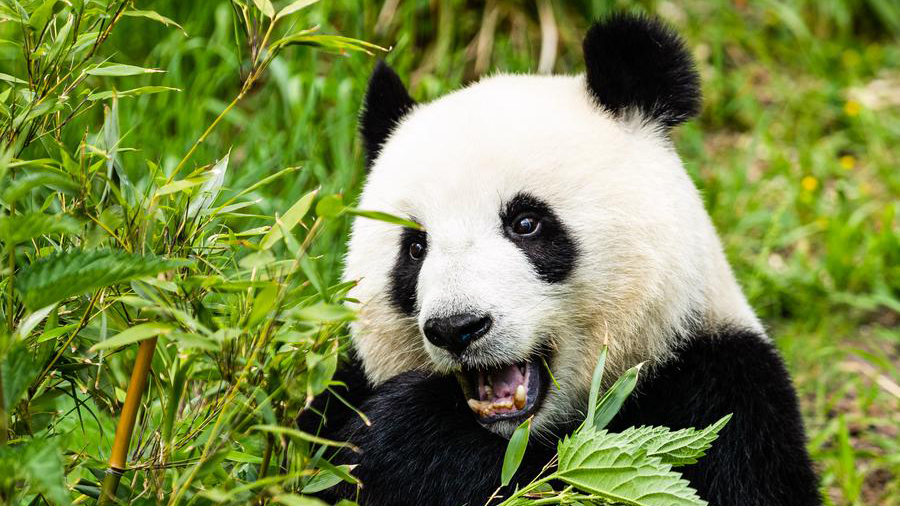U.S. sees growing threat of rare, deadly mosquito virus
LOS ANGELES, Aug. 26 (Xinhua) -- In recent weeks, U.S. authorities have sounded the alarm over the resurgence of eastern equine encephalitis (EEE), a rare but deadly mosquito-borne virus, prompting public health warnings and preventative measures to curb its spread.
Known colloquially as "Triple E," this virus has made its presence felt in a growing number of communities in Massachusetts and other states. The re-emergence of EEE has sparked significant concern among residents and health professionals, leading to closed parks, restricted outdoor activities and rescheduled public events.
EEE is a highly dangerous viral illness transmitted to humans and horses through the bite of infected mosquitoes. The disease primarily affects the central nervous system, leading to severe neurological conditions and, in some cases, death, according to the U.S. Centers for Disease Control and Prevention (CDC).
The virus is an alphavirus, closely related to other encephalitis viruses like the western equine encephalitis and Venezuelan equine encephalitis viruses. Although EEE is rare, with only a few human cases reported annually in the United States, it is considered one of the most severe mosquito-borne diseases in the country, according to the CDC.
On Aug. 16, the Massachusetts Department of Public Health confirmed the state's first human case of the EEE virus this year -- a man in his 80s. This has put ten communities in the state on high alert. In response, targeted mosquito spraying has been implemented to protect residents.
New York State Agriculture Commissioner Richard A. Ball on Monday urged horse owners across the state to vaccinate their horses against EEE and West Nile Virus (WNV), both caused by the bite of an infected mosquito.
So far this year, New York has already seen cases of EEE found in horses, but no confirmed cases in humans yet. The commissioner stressed in Monday's release that prevention measures are "especially important" since parts of New York have mosquito activity into late November.
A human infection case has also been reported in Vermont. The state health officials confirmed the case in July, a male in his 40s, which is the state's first human case of EEE since 2012. In 2012, two people contracted EEE in Vermont and both died, according to the state's health department.
The CDC reports that while most people infected with EEE do not exhibit symptoms, those who do can experience anything from mild flu-like symptoms to severe neurological problems.
Encephalitis, or inflammation of the brain, occurs in the most severe cases, with a mortality rate of approximately 30 percent. Survivors often suffer long-term neurological damage.
People over 50 years of age and under 15 years of age seem to be at greatest risk for developing severe disease when infected with EEE virus, according to CDC.
The virus is primarily maintained in a cycle involving Culiseta melanura mosquitoes and birds in freshwater swampy areas. Humans and horses become infected through "bridge" mosquitoes that bite both birds and mammals.
The disease is most prevalent in the eastern United States, stretching as far west as Wisconsin, and along the Gulf Coast. The risk of EEE outbreaks is exceptionally high during the mosquito season, which typically runs from mid-July through mid-September.
Historically, the year 2019 saw the highest number of human EEE cases in the United States, with 38 reported nationwide. The virus has also been detected in Florida, Georgia, Maryland and Wisconsin.
Currently, no vaccines or specific antiviral treatments are available for EEE in humans. Treatment is primarily supportive, focusing on alleviating symptoms and managing complications.
Health officials are strongly urging people to take extra measures to protect themselves from mosquito bites as prevention is the best defense.
They recommend using insect repellent when outdoors, wearing protective clothing, avoiding peak mosquito activity times during dawn and dusk, and eliminating standing water around homes to prevent mosquito breeding.
Photos
Related Stories
- U.S. colleges brace for possible return of war protests: USA Today
- U.S. protectionist measures trigger global worries about trade war: spokesperson
- US entry horror triggers complaints from students
- Robert F. Kennedy Jr. ends presidential campaign, endorses Trump
- Harris accepts presidential nomination at Democratic National Convention
Copyright © 2024 People's Daily Online. All Rights Reserved.









